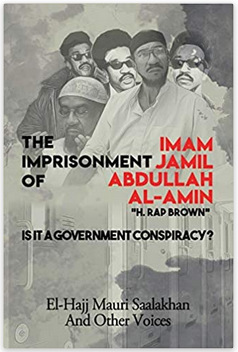The Imprisonment of Imam Jamil Abdullah Al-Amin: Is It A Government Conspiracy?
In the opening days of the trial of Imam Jamil Abdullah Al-Amin (the former H. Rap Brown), the late Coretta Scott King, founder of the Atlanta-based Martin Luther King Center for Nonviolent Social Change, released a statement that read in part: “For justice to be faithfully served there must be no rush to judgment and the defense must be allowed to present all of its evidence, just as the prosecution must uphold the highest standards in meeting the burden of proof.”

Unfortunately, there was a rush to judgment, with exculpatory evidence favoring the accused deliberately left out of the judicial process. As a result, someone who many believe to be an innocent man has now marked 20 years of unjust imprisonment. Among those who question the legitimacy of Al-Amin’s conviction and life sentence is another “civil rights icon” who testified as a character witness on behalf of the accused during the sentencing phase of his trial. Former US Ambassador to the United Nations (and mayor of Atlanta, GA), Andrew Young, recently spoke of “a case that weighs heavy on my heart because I really think he was wrongfully convicted. I’m talking about Jamil Al-Amin, H. Rap Brown.”
The Imprisonment of Imam Jamil Abdullah Al-Amin examines the history of this controversial figure – from his days as a young firebrand during the 1960s, to the transformative work on himself and the communities he served in later years as a Muslim cleric. Through such voices as Karima Al-Amin, Esq.; Dr. Harry Edwards (principle founder of the 1968 Olympic Project for Human Rights); well-known and accomplished academic, Dr. Cornel West; respected Muslim cleric, Imam Khalid Griggs, and others, we get a glimpse into the man who came to symbolize one of the most turbulent decades in American history, and the power of faith-based revolutionary transformation.
Through the pages of this book we also get a glimpse into the years of unwarranted surveillance of Imam Al-Amin’s lawful activities, leading up to the tragedy of March 16, 2000 – a still controversial tragedy that resulted in the death of one sheriff’s deputy and the serious injury of another – as we seek to explore the provocative question: Is the imprisonment of Imam Jamil Abdullah Al-Amin the result of a never-ending government conspiracy?
Available new in paperback from Amazon
A book by El-Haaj Mauri Saalakhan, The Aafia Foundation